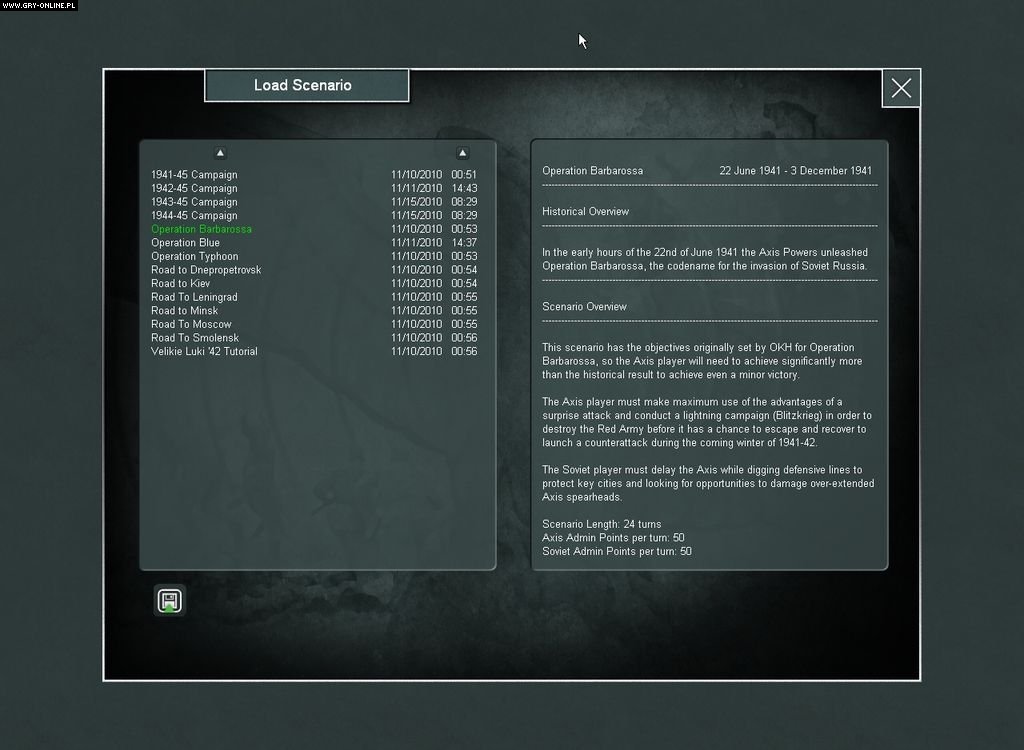
Gary Grigsby S War In The East Serial Number
Amazon.com: Gary Grigsby's War in the East: The German-Soviet War 1941-1945: Video Games. Only 10 left in stock - order soon. So if you want a game where you have to calculate the number of men, number of vehicles, fuel usage of.
• July 21, 2015 • / • • / • This is a quick introduction to the most basic of things in War in the East. War in the East, or WitE, is a massive beast. The scale it latches on to is gargantuan. It can stretch from Finland to the Black Sea. Now I don’t recommend starting with the full war, start with Road to Minsk.
But first, what the hell are we looking at? This is what you’ll spend most of the game shuffling about. It’s a basic NATO counter. This was made popular in the 1970’s.
Since then variations have entered games, or in Hearts of Iron case, are on the way out. They can be rather daunting, and to the novice, not very intuitive. We’ll start in the center. This is the unit type designation. You’ll see rectangles, ovals, slashes, and we’ll get to that later on.
This particular one is mechanized infantry. Typically a Panzer division, or maybe an SS, but you’ll also see regular Wehrmacht too. The XX isn’t for a bad proof of whisky but denotes this unit as a Division. You’ll also see • II Battalion • III – Regiment • X – Brigades • XX – Division • XXX – Corps • XXXX – Army • XXXXX – Group The Regiment is created when you use the Build Up / Breakdown button.
In some scenarios you’ll start with a bunch of these. We’ll get to the combat value below, but be aware that you are splitting a Division apart, and the regiments will be weaker than the whole. So why do it? Maybe to cover a front you don’t expect the enemy to attack. Now we’re to the important numbers. The first value is the combat strength.
This is computed from a ton of different variables. Equipment, fatigue, experience, morale, attached units, HQ effectiveness, weather, all balled up into a tidy little number. Higher is better. The next number is your movement value. Higher is good, but as you move this will drop. Drive through a swamp? That’ll cost more movement.
Drive next to hostiles? More movement.  Running low on fuel? You’ll start with even less movement points. Your mechanized units, at full fuel, will get 50 movement points. Your infantry, 16. You see what that means now.
Running low on fuel? You’ll start with even less movement points. Your mechanized units, at full fuel, will get 50 movement points. Your infantry, 16. You see what that means now.
Your tanks can move three times as far as your infantry. Stretch that out a few weeks and you can easily outrun your supply lines. This isn’t all the unit types.
But it covers the ones you’ll see most often. We’ll get into roles and such another day.
Most of these are pretty self explanatory. One that really needs a shout out though is the Rail Repair unit. Air drops are rare in WitE, and you move supplies by rail. Lots of supplies. Your units have to be within so many hexes of a railhead. This varies by weather, and through rough terrain, but once you advance too fast, you’ll run out of beer and bullets. This unit deserves special mention.
If you’re playing as Germany you won’t see many to begin with, but during your first Winter you’ll want these. Lot’s of them.
It is a fortified region (or zone). A hex with fortifications will decay if no unit is present.
Want to keep those great fortifications but not tie up an Infantry Division? They cannot move. They cannot attack.
All they do is maintain a fortified area and assist in defense. If you need a defensive line, you can lay out a bunch of these and they’ll build up fortifications.

Now when your line is extended, you’ve got fortifications to fall back to. On the downside they take up manpower, cost Admin Points, and consume supplies. Plus you’re diverting units away from potential assault roles. A few more basics, that black rectangle in the upper right? That tells you if the unit has moved or not (or if it can move). No rectangle, no movement left, or it didn’t start the round with any.
You’ll also see colored triangles on the upper left, this is your soft factors. It allows you to see things like morale, supply, and experience.
In game you click in the upper right hand corner right next to the “Vehicle Pool” info tab. Background Color is also important.